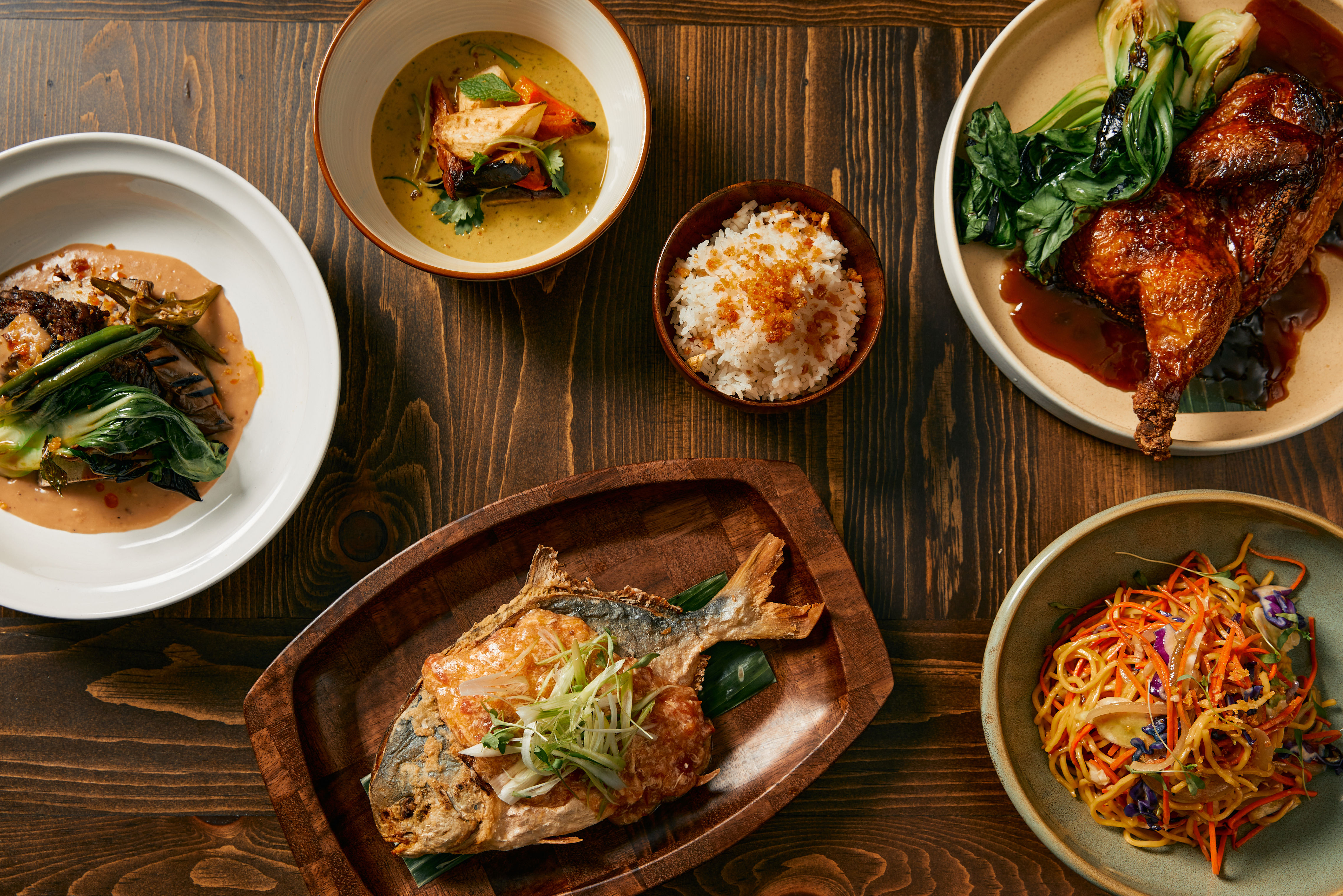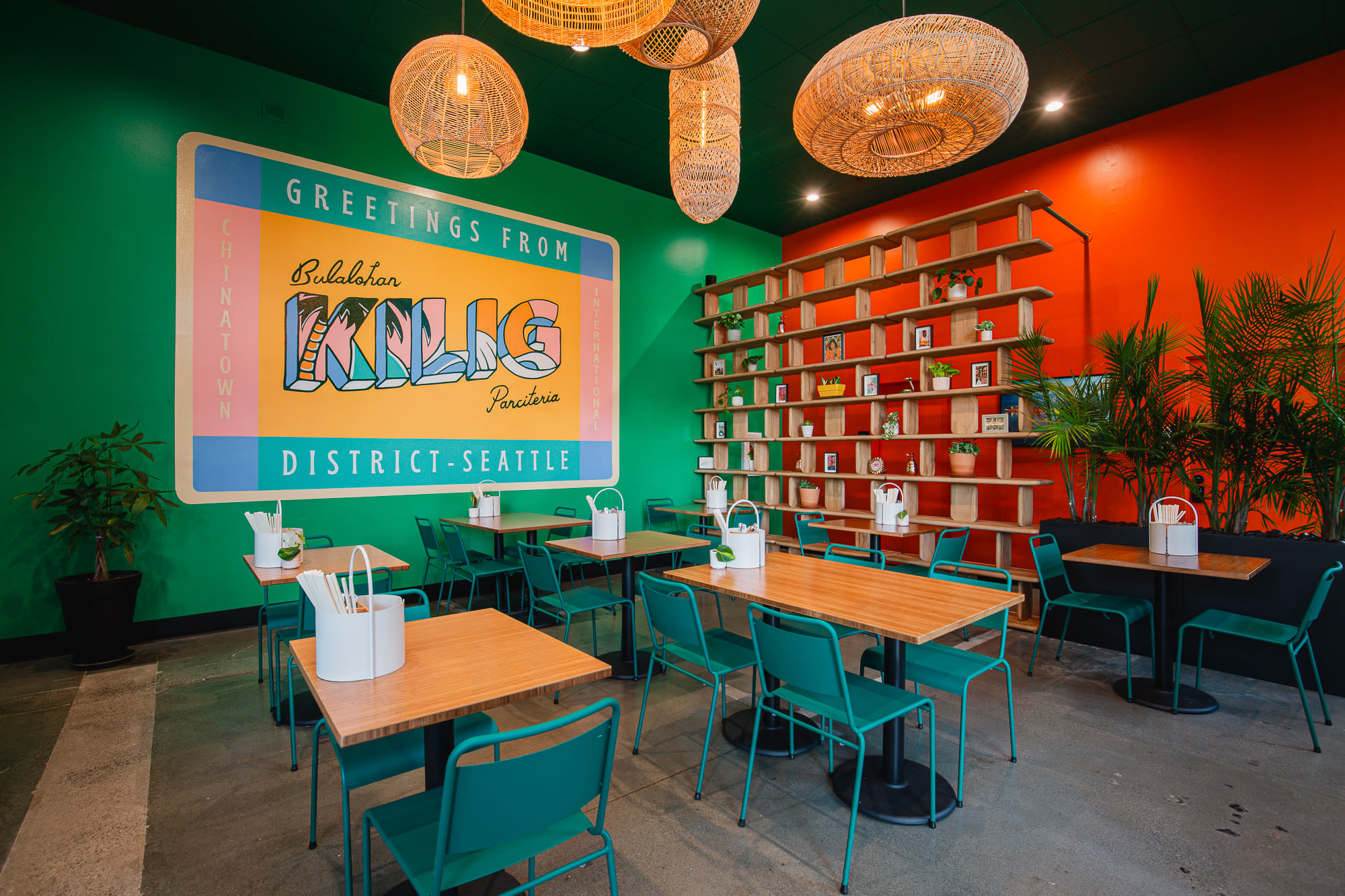At Kilig, Melissa Miranda Mixes Comfort with Creativity

Image: Amber Fouts
Kilig doesn’t open for another three minutes, but three grandma-age ladies are already in formation by the still-locked doors. Their body language makes it clear, politely, that they were here first. “The lolas are here,” my friend whispers, his voice a little awestruck. At a Filipino restaurant, the presence of lolas is a very good sign—like seeing a bunch of off-duty chefs at a diner.
The first weeks of 2024 rode in rough for chef Melissa Miranda. January’s cold snap burst a pipe at her flagship restaurant, Musang. Instead of serving its nightly menu of groundbreaking Northwest-Filipino dishes, the dining room is closed for a slate of repairs that’s stretching into its fourth month. It was a hell of a blow, especially on the eve of a James Beard semifinalist nod, though it didn't stop Musang from becoming a finalist this week. In a wildly fortuitous turn of events, Miranda has a little event space two doors down from Musang. In a blink, it became a temporary restaurant called Wild Cat that successfully channels the best parts of Musang.

Image: Amber Fouts
Oh, and alongside all this, Miranda was breaking in Kilig, the new fast-casual restaurant she opened in the Chinatown–International District in October. Her restaurant falls in within the historic boundaries of what’s now called Filipinotown; it arrived as an instant and joyful addition to Seattle’s weekday lunch circuit. But with its elder sibling under repair, it’s taken on some additional responsibilities.
Miranda first envisioned Kilig as a shop for bulalo, the beef shank soup from the Philippines. Seattle’s love of pho is as definitive as our nonsensical scorn for umbrellas. She figured this town could get the town on board with another warming soup. Her cheffy touches are the kind that don’t even register. All you know is the broth is clear, but carries the flavor of something deep and murky. The cabbage is ever so slightly charred, marble potatoes tender. Each bowl comes with a knob of corn on the cob and a length of beef shank (from Preservation Meat Collective, because cheffy) just waiting for you to extract its marrow with a pair of plastic chopsticks.

Image: Amber Fouts
Unlike pho, bulalo isn’t a soup with noodles. Each massive bowl comes with a sidecar of rice. The lolas approve. A vegetarian version leans on mushrooms to achieve that same heft. At Kilig, the noodles happen on the pancit section of the menu. Fans of the adobong pusit pancit at Musang will be jazzed to find the same inky wok-fried noodles and squid here. The mother ship’s impeccable, delicate lumpia are here too.

Image: Amber Fouts
Little siblings get away with more. I didn’t walk into a Melissa Miranda restaurant expecting transcendent chicken wings. But Kilig’s version, inspired by sinigang’s sour charm, adds tartness and tamarind to the usual greasy-crisp pleasures. Kare kare dan dan remixes thick peanut buttery stew of so many Filipino childhoods with Sichuan dan dan noodles. It’s very peanutty, moderately spicy, and almost criminally rich.
Kilig was supposed to be a “lunch-forward” spot, the kind that serves cocktails, but closes by 8pm. After Musang’s catastrophic dousing, Miranda added dinner at Kilig. Now, she says, there’s no going back. “For the team too, they get to do more things and be more creative.”
A wedge salad in a bulalo shop? “We’re trying to have more vegetables on the menu,” my server explains, with a why-the-hell-not giggle. It’s dressed with puffed rice and pickled mango chunks, dried anchovies swimming in a tide of vegan caesar dressing. It may not be for everyone, but it’s one hell of a thought experiment on what defines a wedge salad. Miranda added one of the menu’s best dishes, the pork adobo, after it was a hit at a popup she did for the rapper P-Lo.

Image: Amber Fouts
“I would never serve kare kare dan dan or sinigang wings at Musang,” she says. Riffs and twists don’t feel exactly right in that converted Craftsman dining room, where the traditional kare kare and even the dinuguan stew are elegantly plated.
The lolas might not be ordering wings and wedges. Or maybe they do; I’m not about to tell an auntie how to live her life. But diners of all kinds can get behind the arrival of a casual, counter-service Filipino restaurant in the Chinatown–International District. Miranda opened Musang on Beacon Hill in part to restore Filipino community in its historic hub, also the neighborhood she grew up in. Her new spot brings visible, postcard-colorful representation to a neighborhood where Filipino Americans’ contributions are historically overshadowed.

Image: Amber Fouts
The past few months (not to mention the entire pandemic) proved this chef’s ability to be a creative problem solver. Sometimes it’s nice to have a place where you can just be straight-up creative.




